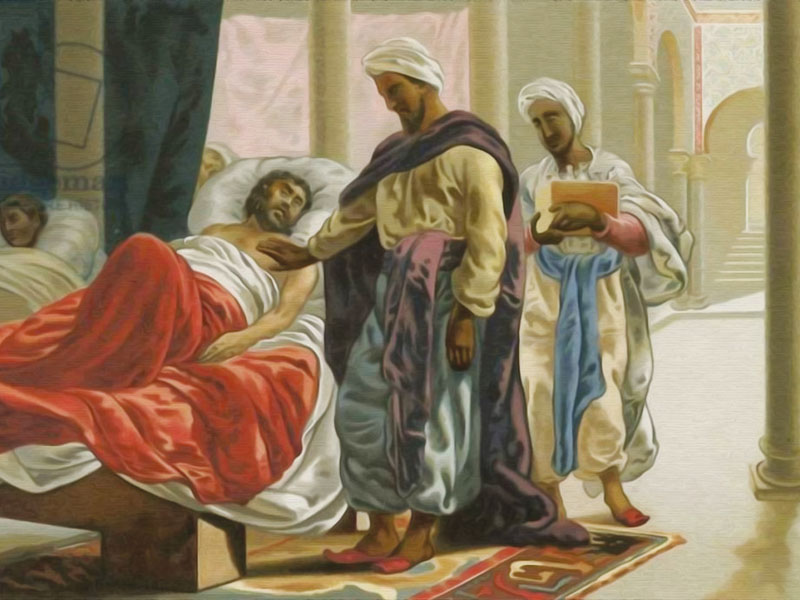Epidemics and Diseases in Moroccan Folk Culture: Significance and Symbolism
Issue 57

By Professor Hamadadu bin Umar,
History Department, University of Oran 1
Epidemics, diseases, famines and other natural disasters influenced the stagnation of economic, social and political structures, condemning them to a lack of development. In a broader sense, epidemics, diseases and famines were factors in the demographic waste that afflicted societies in the Maghreb from the 15th to 17th centuries, and in the 18th and 19th centuries.
We discovered that, unlike Moroccan societies, European societies entered a time of major transformation at all levels as soon as they were liberated from epidemics, diseases and famines.
The memories of epidemics and diseases in the Maghreb formed a folk culture represented by a set of behavioural patterns and actions that reflected the fear of disease and epidemics. People resorted to seeking blessings, healing and deliverance from disease and death at shrines in the belief that doctors could not save them from disease.
The modern history of the Maghreb must be viewed through the lens of demographic disasters and crises, the causes of these epidemics, diseases and crises, and their manifestations, impacts and negative ramifications on the authorities and society as a whole.
This paper includes conclusions that I reached after reviewing numerous manuscripts. Here are a few of my conclusions:
- Unlike formal culture, Moroccan folk culture was able to preserve crises in the collective memory with songs, proverbs and folktales.
- The names of these epidemics and diseases are almost universally agreed upon in manuscripts from the Maghreb in general and from Algeria in particular.
- Explicit attitudes towards these epidemics and diseases vary, particularly in terms of ways to prevent and protect against epidemics, as reflected by Jurist Hamdan bin Othman Khuja in his book ‘Itahaf Al-Munsifin’ and by Abu Hamid Al-Arabi Al-Mushrafi in his book ‘Aqwal Al Muta'in’.
- Common people used to believe that epidemics and diseases were divine punishment for their sins and lack of religious faith.
The relationship between jurists and historians remains controversial in terms of epidemics and diseases and their various interpretations because jurists' theories are based on legal evidence while historians' theories are based on folk practices.



































































